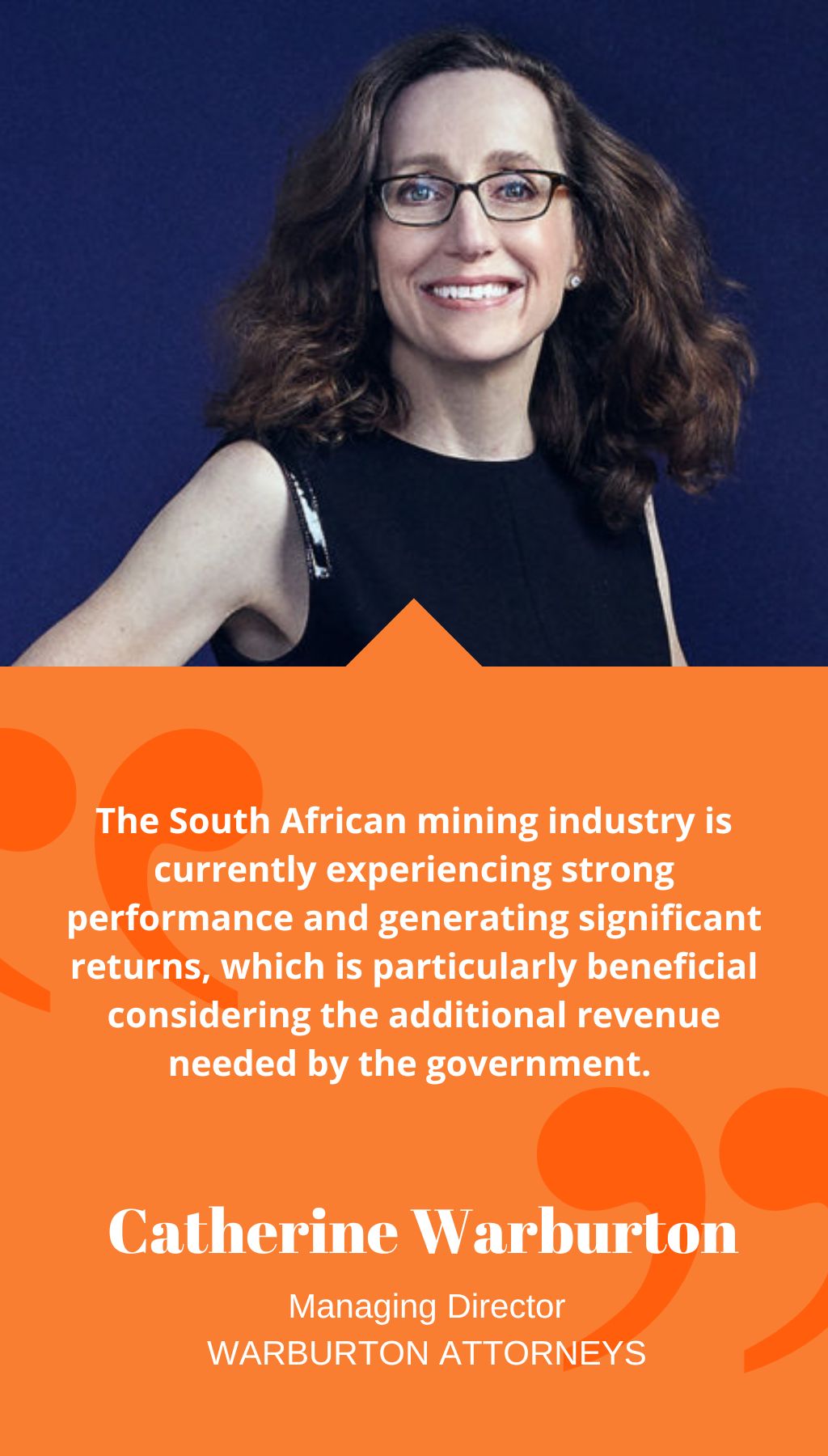
- South Africa | 29 November 2021

Can you give an overview of Warburton Attorneys and the company’s history in the region?
Warburton Attorneys was established in 2000 by our founder, who previously worked in-house at Anglo American South Africa. From the beginning, our firm has been providing legal services to a wide range of mining companies. Over time, we expanded our expertise beyond mining and now offer services across various sectors that require environmental support. We specialize in sustainability law, with a focus on environmental law, energy law, mining law and policy, as well as occupational and mine health and safety law. Our goal is to provide comprehensive legal services and advice to our clients, helping them navigate sustainability-related legal issues, ensure compliance, manage risks, and address any pending or current litigation.
From a legal perspective, how are mining companies coping with ESG requirements, and what is the most challenging aspect of the ESG framework?
Mining companies are actively addressing ESG (Environmental, Social, and Governance) requirements, with a particular focus on climate change. The imperative to reduce greenhouse gas emissions, coupled with South Africa’s unreliable power supply, has driven an increase in renewable energy generation projects within the mining industry. The recent announcement by the President, allowing self-generated renewable power up to 100MW without a license, has been welcomed and will positively impact companies’ efforts to reduce carbon emissions.
Water scarcity is another significant challenge in South Africa, and mining companies must carefully manage their impact on water resources. Community engagement is also a critical aspect of ESG, as communities are increasingly aware of their environmental rights and have the resources to enforce them. There is growing pressure on all industries, including mining, from communities demanding pollution reduction and stricter enforcement by regulators. Greater consultation is required regarding the location and management of certain developments. However, many mining operations have developed strong relationships with local communities, and some have become integral parts of the social and economic fabric of the area. While communities are demanding their voices be heard, there are success stories where coordination and collaboration have been achieved.
ESG challenges in South Africa have spurred innovation, flexibility, and resilience within the mining industry.
How would you characterize the overall health of the South African mining industry?
The South African mining industry is currently experiencing strong performance and generating significant returns, which is particularly beneficial considering the additional revenue needed by the government. The sector continues to make a substantial contribution to the South African economy. However, certain parts of the industry are approaching the end of their life cycles. One challenge is the slow response and decision-making processes from the Department of Mineral Resources. New projects and closure applications have faced burdensome and time-consuming regulatory procedures, worsened by the impact of the Covid pandemic. There is a pressing need for more efficient and effective administration at the provincial level, supported by clear and consistent leadership from the national department. Streamlining regulatory processes will be crucial to ensuring the industry’s long-term sustainability and competitiveness.














